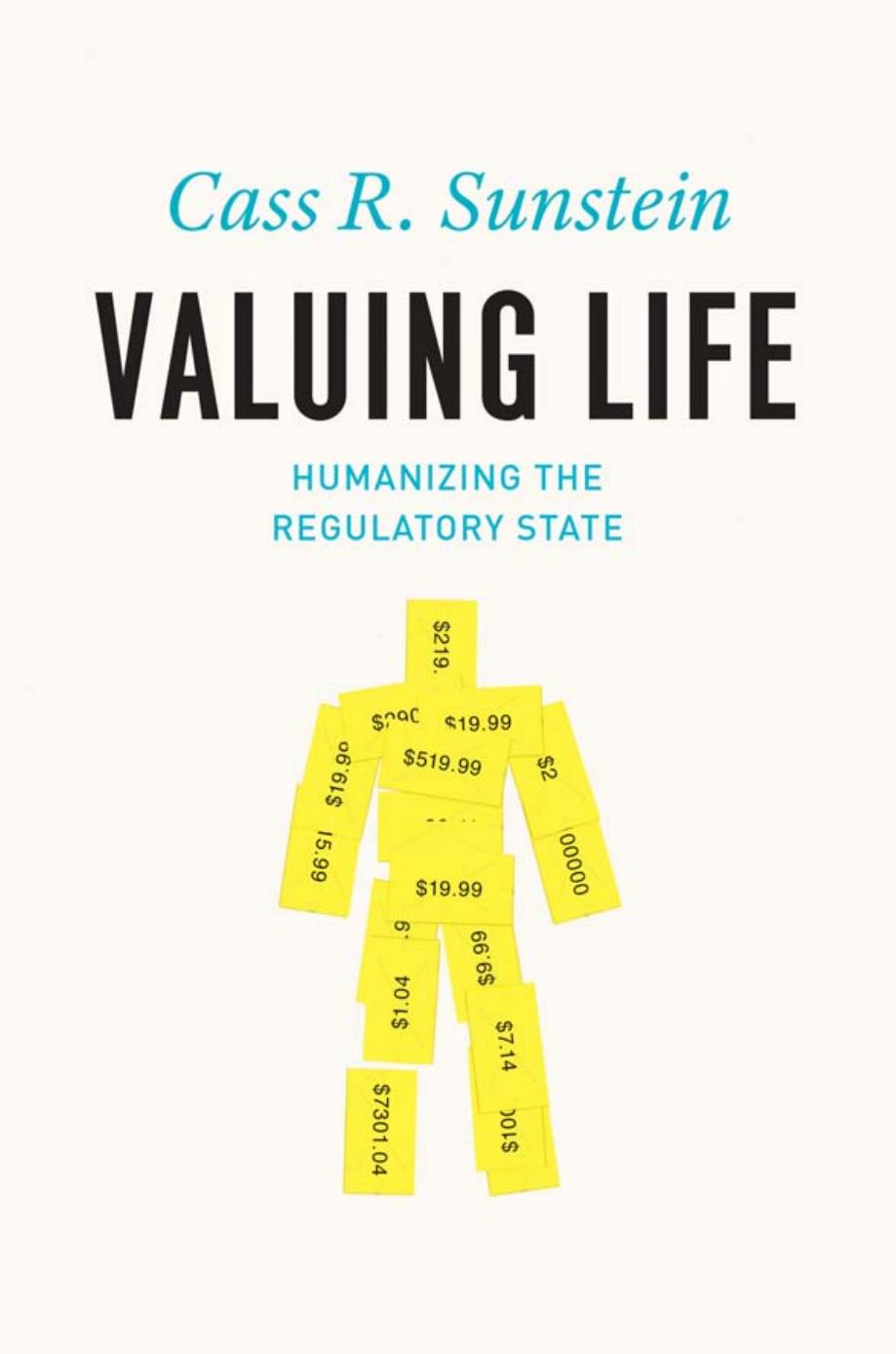Valuing Life: Humanizing the Regulatory State by Cass R. Sunstein

Author:Cass R. Sunstein [Sunstein, Cass R.]
Language: eng
Format: epub, pdf
Publisher: The University of Chicago Press
Published: 2014-02-25T16:00:00+00:00
SIX
The Morality of Risk
Pioneering the modern literature on the use of heuristics in cognition, Amos Tversky and Daniel Kahneman contended that “people rely on a limited number of heuristic principles which reduce the complex tasks of assessing probabilities and predicting values to simpler judgmental operations.”1 A great deal of controversy has developed over the virtues and vices of the heuristics, most of them “fast and frugal,” that play a role in many areas.2 When people use simple heuristics, or mental shortcuts, it is generally because they work well, in the sense that they enable us to make good decisions. But even if heuristics usually work well, they can lead to big errors. When we make inaccurate assessments of probabilities, it may well be because simple heuristics are leading us astray (see chapter 7 for more details).
The relevant literature is only starting to investigate the possibility that in the moral and political domain, people also rely on simple rules of thumb that often work well but that sometimes misfire. In fact the central point seems obvious. Much of everyday morality consists of simple, highly intuitive rules that generally make sense but that fail in certain cases. It is wrong to lie or steal, but if a lie or a theft would save a human life, lying or stealing is probably obligatory. Not all promises should be kept.
One of my major goals in this chapter is to identify a set of heuristics that influence not only factual but also moral judgments, especially in the domain of risk, and to try to demonstrate that some widely held practices and beliefs are a product of those heuristics. Often risk-related heuristics represent generalizations from a range of problems for which they are indeed well suited, and hence most of the time, such heuristics work well. They have “ecological rationality” in the sense that they produce sensible judgments to the contexts to which they ordinarily apply. They make life simpler, easier, and better.
The problem comes when the generalizations are wrenched out of context and treated as freestanding or universal principles, applicable to situations in which their justifications no longer operate. Because the generalizations are treated as freestanding or universal, their application seems obvious. Those who reject them appear morally obtuse, possibly even monstrous. I want to urge that the appearance is misleading and even productive of moral mistakes. There is nothing obtuse or monstrous about refusing to apply a generalization in contexts in which its rationale is absent.
To the extent that Kahneman and Tversky were dealing with probability judgments, they could demonstrate that the heuristics sometimes lead to errors. Unfortunately, that cannot easily be demonstrated here. In the moral and political domains, it is hard to come up with unambiguous cases where the error is both highly intuitive and on reflection uncontroversial—where people can ultimately be embarrassed about their own intuitions. Nonetheless, I hope to show that whatever one’s moral commitments, moral heuristics exist and indeed are omnipresent, with occasionally unfortunate effects on both individual and social reactions to risks.
Download
Valuing Life: Humanizing the Regulatory State by Cass R. Sunstein.pdf
This site does not store any files on its server. We only index and link to content provided by other sites. Please contact the content providers to delete copyright contents if any and email us, we'll remove relevant links or contents immediately.
The Secret History by Donna Tartt(19017)
The Social Justice Warrior Handbook by Lisa De Pasquale(12180)
Thirteen Reasons Why by Jay Asher(8879)
This Is How You Lose Her by Junot Diaz(6868)
Weapons of Math Destruction by Cathy O'Neil(6257)
Zero to One by Peter Thiel(5778)
Beartown by Fredrik Backman(5726)
The Myth of the Strong Leader by Archie Brown(5489)
The Fire Next Time by James Baldwin(5421)
How Democracies Die by Steven Levitsky & Daniel Ziblatt(5207)
Promise Me, Dad by Joe Biden(5138)
Stone's Rules by Roger Stone(5073)
A Higher Loyalty: Truth, Lies, and Leadership by James Comey(4944)
100 Deadly Skills by Clint Emerson(4909)
Rise and Kill First by Ronen Bergman(4766)
Secrecy World by Jake Bernstein(4735)
The David Icke Guide to the Global Conspiracy (and how to end it) by David Icke(4694)
The Farm by Tom Rob Smith(4498)
The Doomsday Machine by Daniel Ellsberg(4477)
